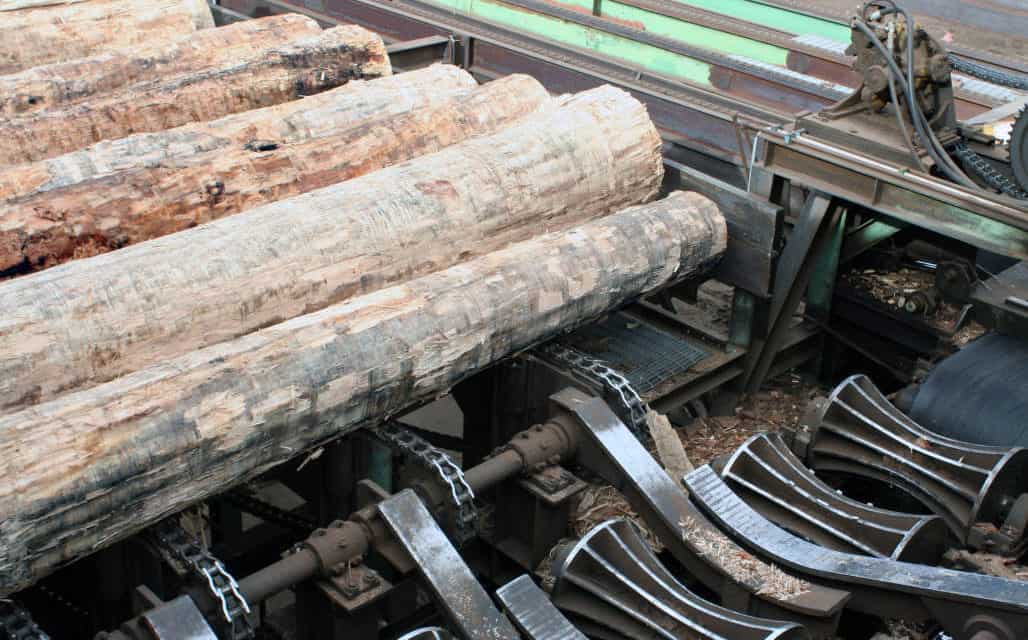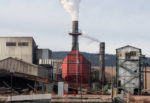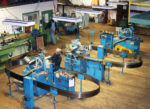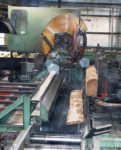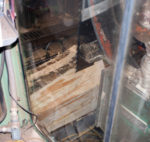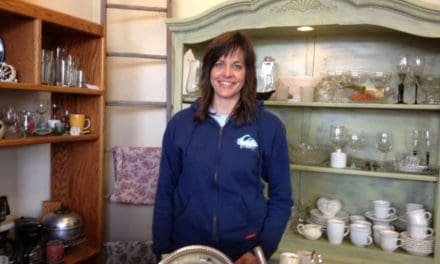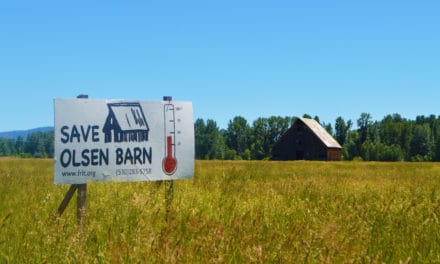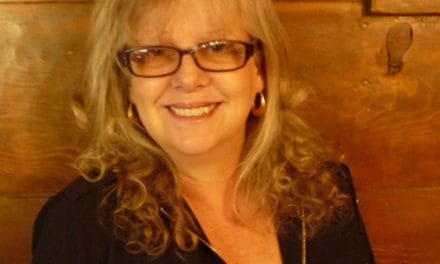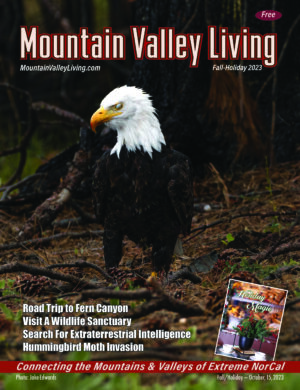Story and photos by Stacy Fisher
The history of the Collins Pine Company Sawmill in Chester, California is inextricably tied to the history of the region.
Headquartered in Portland, Oregon, Collins traces its roots back to 1855 when T.D. Collins began timber operations in Pennsylvania.
By the turn of the century, the family had expanded west to manage 60,000+ acres of timberlands tucked into the Sierra Nevada Mountains of Northern California, which to this day supplies about half of their trees. The rest is bought from the forest service and private landowners. Collins currently owns 94,000 acres in the Sierra’s and a total of 305,000 acres that include their OR, WV and PA lands.
Manufacturing began at the Chester Sawmill in 1943 during WWII, and their tree service has been recognized for their sustainable yield management. In 1993 the Collins Almanor Forest and the Chester Sawmill achieved third-party certification through the Forest Stewardship Council (FSC). Collins was the first privately owned forest products company in the US to be FSC-certified.
Collins Builders Supply opened its doors in 1946 to primarily service the company’s employees. Most were coming back from the war and were living in bunk houses. As they married and got ready to raise families they needed a place to purchase building materials, appliances and outfit their homes. At the same time there was a resurgence of secondary homes or recreational homes being built around Lake Almanor. Collins Builders Supply now serves the entire Almanor Basin.
Marty Mason is the truck shop supervisor and purchaser for the company, sometimes spending hours online searching for the right part to keep the mill’s massive machinery running smoothly.
“We tore down the old sawmill and built a new one in 2002,” Marty shares, who’s worked at the mill for 28 years. The $20 million improvement upgraded their operation with modern electronics, laser scanners, and computer controls to improve optimization and reduce waste. “It was like going from the Flintstones era to The Jetsons era almost overnight.”
The facility resides on 800 acres of land, and produces lumber from White Fir, a preferred construction species because of its nail-holding ability and lightness in weight, plus Ponderosa Pine, Sugar Pine, Incense Cedar, and Douglas Fir. The operation produces nearly 80 million board feet per year. Some of the finished lumber goes overseas, but most is delivered within the US.
The family-owned company also manufactures engineered wood siding and trim, pine particleboard, and hardwoods.
Once the cut trees are delivered to the site from Collins Almanor Forest, huge tractors transport the wood from a storage yard adjacent to the mill and deliver them to be debarked, before setting the logs onto conveyers that feed the wood into the first section of the plant. The whole process, from checking the raw logs with a metal detector for imbedded metal such as spikes or nails, to cutting the logs into lumber of various lengths and thicknesses, is a complex progression that nevertheless takes just a few minutes to complete per log.
“As the logs go through the mill their exact dimensions are scanned by laser and the information is then fed into a computer,” Marty explains. “A human operator, with the help of the computer readouts, decides what is the best way to cut the wood based on its size and grade.”
Graders also manually inspect the product and mark it accordingly with colored crayon. Computers use the markings to keep track of each board as it travels down the line so that it is trimmed and sorted properly.
A giant 19-foot diameter band saw located at the C-Frame cuts as many as six logs per minute, depending on size. The maximum size log for the Head-Rig can measure up to 60 inches in diameter and 20 feet in length, and may take two full minutes to section.
The saw operator is surrounded by thick glass within an enclosed shelter that has the appearance of a jet fighter cockpit, complete with joysticks and foot pedals for controlling the saw and position of the logs for maximum recovery. Several computer screens display the various parameters of the wood and other information to the operator.
One of the interesting aspects of the sawmill is that it derives all of its power to run the operation from burning sawdust and wood chips left over from processing the logs. The burning waste wood creates steam that spins a turbine and powers an electric generator to produce electricity. Any excess is sold to PG&E.
Boiler operator Jan Krause oversees the power cogeneration station and says the generator can produce up to 12 megawatts per hour of electricity, but points out the plant site can operate on just four megawatts per hour.
“We also use the steam in our dry kilns to dry the wood before it is packaged for delivery,” she adds. A total of six steam kilns hold up to a quarter million board feet of lumber per kiln.
In one large room, four saw blade filers work fulltime sharpening and repairing the dozen or so steal band saws. First and second shift Millwright crews are on duty to keep the myriad of machines working together in concert.
At times tours are given during the week on an impromptu basis, mostly during the summer months. Typically, college students from forestry schools come to tour the plant on a fairly regular basis. Individuals and small groups interested in taking a tour of the mill need to call the office ahead of time to schedule an appointment when tours are available. Orange hard hats and earplugs are handed out as a precaution, as some areas of the sawmill are quite loud.
Chester sawmill is not just a plant of beasty machines and mountains of sawdust. It is a place where people and machinery merge together as an efficient team.
The company’s mission is to manage the forests sustainably, while nurturing its biodiversity, according to the company’s website. The mill provides a stable workforce that has contributed to building a healthy community where families can work and thrive.
Chester Sawmill
is located at 500 Main St.
in Chester, California, 96020. To schedule a 30-minute tour or for other information, call
530.258.2111 . The Collins Pine Museum is open from May to October, self-guided and free. Collins Museum t-shirts are available for sale at the main office.
Builders Supply is located at 540 Main St. in Chester, California
(530) 258-2131
www.CollinsWood for more information
Facebook.com/CollinsCompanies

